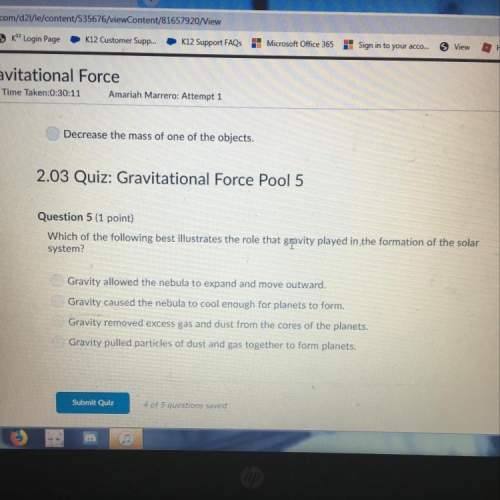
Chemistry, 29.11.2020 19:30 chandranewlon
For a material to float on the surface of water, the material must have a density
less than that of water (1.0 g/ml) and must not react with the water or dissolve in
it. A spherical ball has a radius of 0.50 cm and weighs 2.0 g. Will this ball float or
sink when placed in water? (Note: Volume of a sphere = 4/3(pi)(r^3)

Answers: 1


Other questions on the subject: Chemistry

Chemistry, 22.06.2019 15:30, lovebaeforlife351
Each of the following reactions is allowed to come to equilibrium and then the volume is changed as indicated. predict the effect (shift right, shift left, or no effect) of the indicated volume change. drag the appropriate items to their respective bins. co(g) + h2o(g) < => co2(g) + h2(g) (volume is decreased) pcl3(g) + cl2(g) < => pcl5(g) (volume is increased) caco3(s)< => cao(s) + co2(g) (volume is increased)
Answers: 1


Chemistry, 23.06.2019 01:00, carson9373
Wind and moving water provide energy. chemical mechanical thermal none of the above
Answers: 1

You know the right answer?
For a material to float on the surface of water, the material must have a density
less than that of...
Questions in other subjects:

English, 24.02.2020 19:47

Computers and Technology, 24.02.2020 19:47












